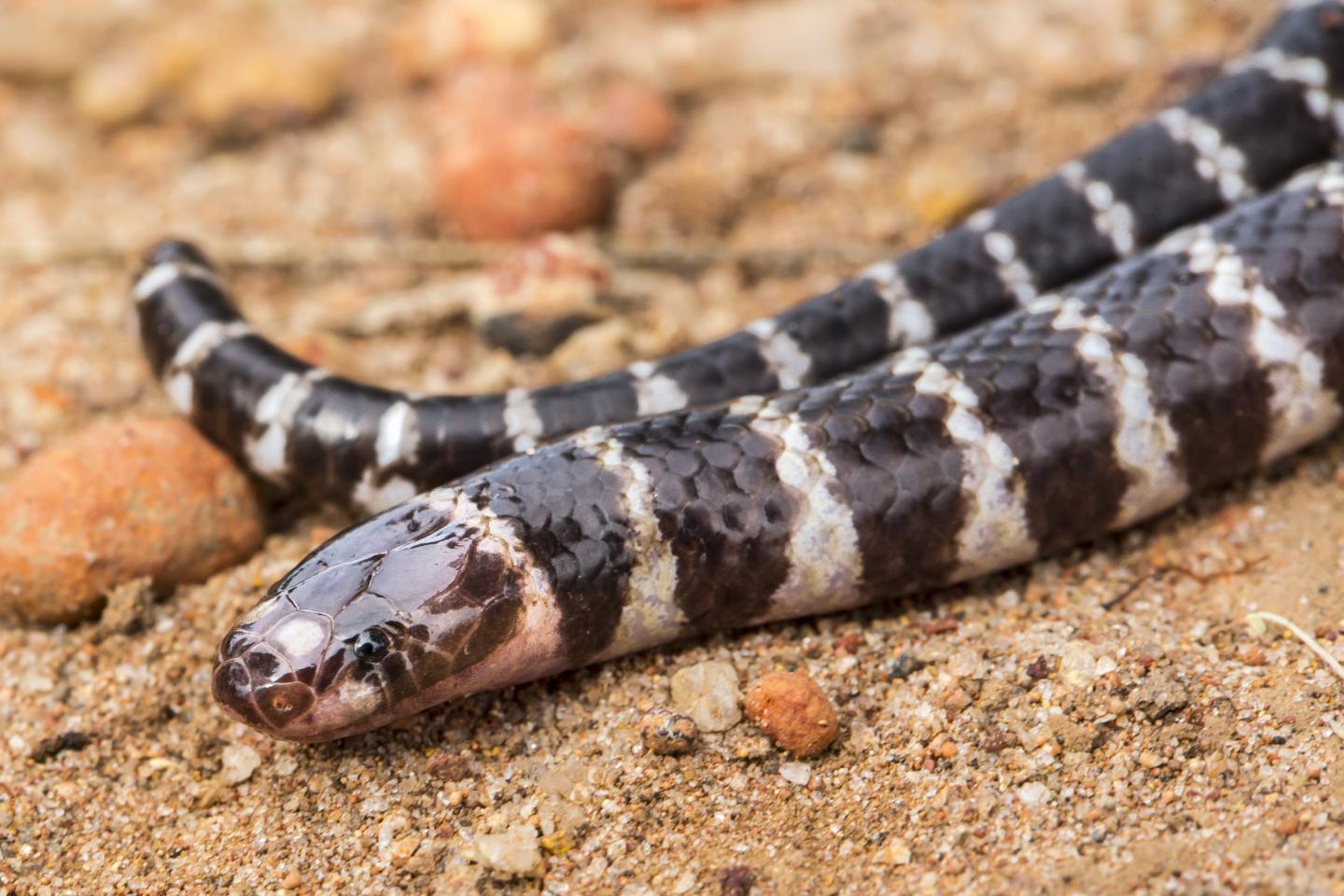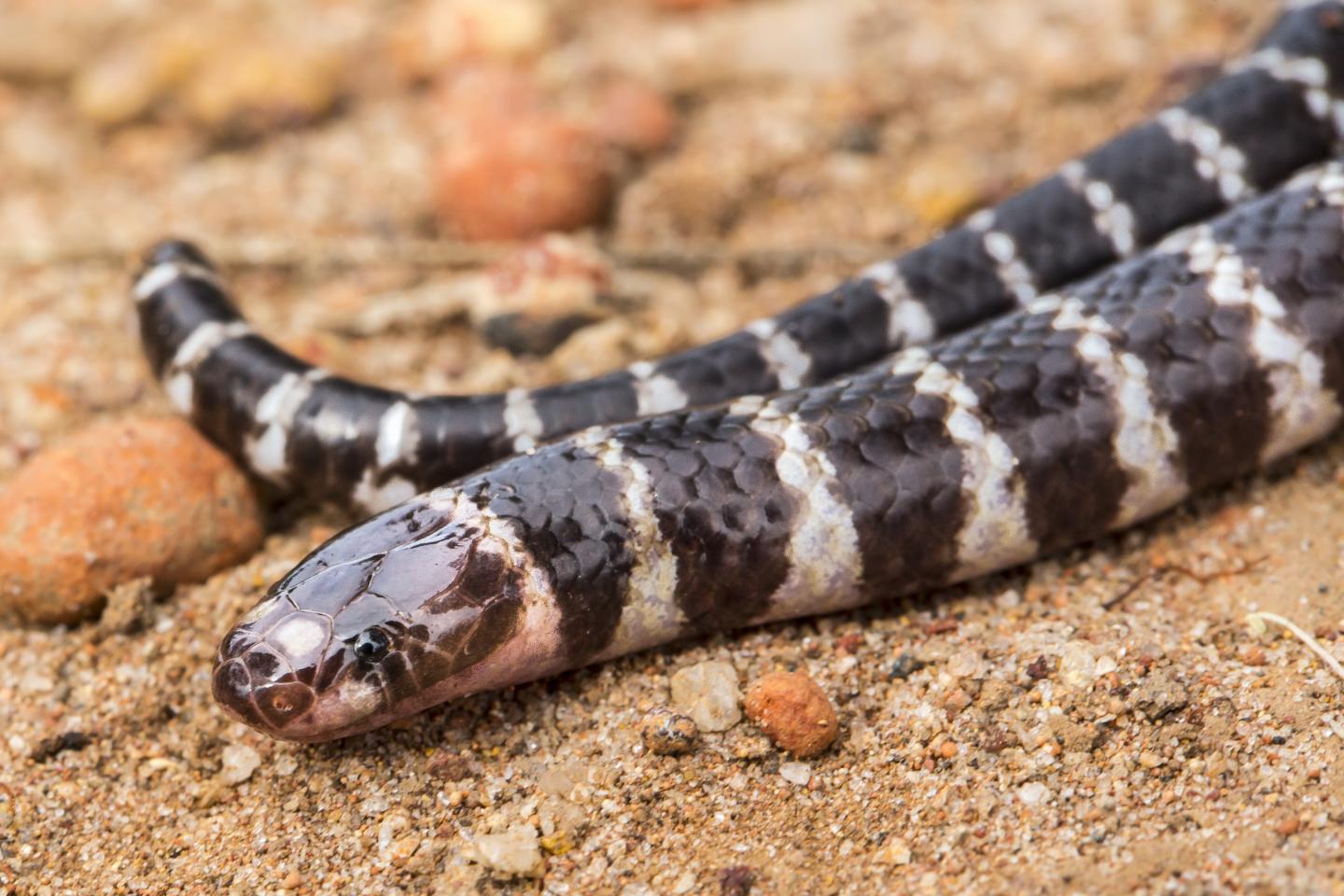
Credit: Dr. Freek Vonk
Researchers at Swansea University's College of Science are part of an international team that has discovered a new species of venomous snake in Australia.
The Vermicella parscauda (Weipa bandy-bandy) is a small (50-100cm) black and white banded snake found only in Australia. It belongs to a group of venomous snakes known as burrowing elapids. But despite being part of a highly venomous family including cobras and the infamous Australian taipans, bandy-bandys pose no risk to humans and their venom could actually contain medicinal properties.
Dr Kevin Arbuckle is leading the molecular data analysis part of the research at Swansea. He said: "We are extremely excited to have identified this new species. After conducting the analyses of molecular data, we found that we had indeed found a distinctly different species than the bandy-bandys known previously."
It could be said that the last thing Australia needs is another venomous snake but as Dr Arbuckle points out, this new species could have distinct benefits. "Due to their secretive habitats, small size, and venom that is not highly toxic to humans, the Weipa bandy-bandy is of no threat to us. In fact, once the venom of this new species is investigated, its complex mixture of biologically active chemicals has the potential to lead to future drug developments that could help humans."
The Weipa bandy-bandy was discovered by Dr Bryan Fry (University of Queensland) and Dr Freek Vonk (Naturalis Biodiversity Centre) in 2014, during a field trip to the Cape York Peninsula. Dr Vonk and Dr Fry suspected that the specimen was different to other bandy-bandy species. During a later trip in 2016, another team member from Dr Fry's lab came across another of the snakes – a sign that the first wasn't simply an unusual individual but might represent a new species. New genetic samples and morphological data were collected for these individuals and compared with all other bandy-bandy species. It was then up to Dr Arbuckle to use the genetic data and test whether the new specimens represented a new, evolutionarily distinct species and to compare this to previously known species.
The Weipa bandy-bandy might pose no threat to humans, but as Dr Arbuckle says, the opposite is unfortunately not true: "Despite only just being discovered the new species already faces significant threat through potential habitat disruption due to mining activities and will likely be classified as endangered or even critically endangered once formally evaluated.
Identifying the species is the first step towards making efforts to conserve it and provides a strong argument to avoid greatly extending the current mining enterprises that threaten its habitat."
###
The paper detailing the discovery of the Weipa bandy-bandy has been published in the journal Zootaxa: https://biotaxa.org/Zootaxa/issue/view/zootaxa.4446.
Media Contact
Mari Hooson
[email protected]
01-792-513-455
@swanseauni
http://www.swansea.ac.uk/
Original Source
http://www.swansea.ac.uk/press-office/latest-research/universityresearchersdiscovernewspeciesofvenomoussnake.php http://dx.doi.org/10.11646/zootaxa.4446.1





